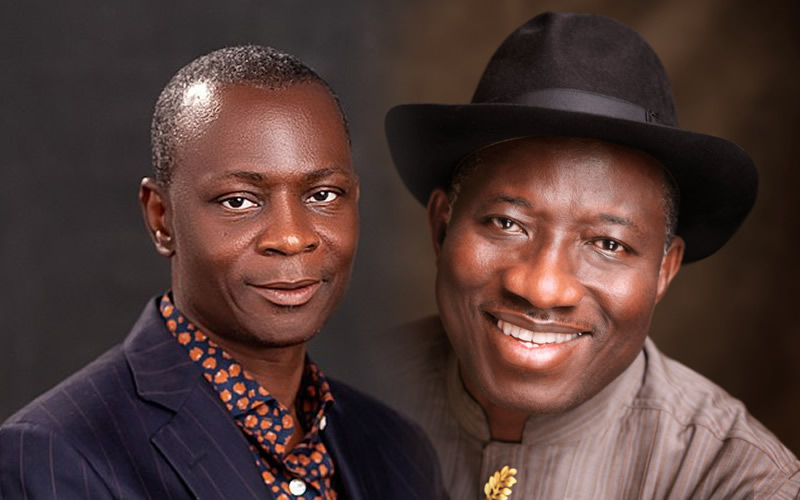The political landscape in Nigeria is buzzing with speculation surrounding the potential return of former President Goodluck Jonathan to the presidential race in 2027. This conjecture has ignited a heated debate, drawing strong reactions from various quarters, including legal experts and political figures. Robert Azibaola, a cousin of the former president, recently entered the fray, publicly rebuking Aviation Minister Festus Keyamo and human rights scholar Professor Chidi Odinkalu for their opposition to the mere possibility of Jonathan’s candidacy. Azibaola’s critique centers on the unsolicited nature of their legal opinions and their purported misinterpretation of the constitutional provisions regarding presidential term limits.
At the heart of the contention lies the interpretation of Section 137(3) of the Nigerian Constitution, which stipulates that a person who has been sworn in twice as president cannot hold the office again. Keyamo and Odinkalu argue that Jonathan, having been sworn in twice – first in 2010 following the death of President Umaru Musa Yar’Adua and again in 2011 after winning the general election – is ineligible to run for president in 2027. They contend that allowing Jonathan to contest would violate the constitutional provision and set a dangerous precedent.
Azibaola, however, vehemently disagrees. He asserts that Jonathan is fully qualified to run for president in 2027, citing existing court judgments that have clarified the interpretation of the constitutional provision. He argues that Jonathan’s first term, which began upon Yar’Adua’s death, should not be counted towards the two-term limit, as it was not a full term won through a general election. He emphasizes that the relevant legal precedents support this interpretation and that Jonathan’s eligibility is beyond question. Furthermore, Azibaola challenges the standing of Keyamo and Odinkalu to offer legal advice on the matter, highlighting that Jonathan has access to a team of experienced Senior Advocates of Nigeria (SANs) who provide him with comprehensive legal counsel.
The ongoing debate underscores the sensitivity and complexity of the issue of presidential term limits in Nigeria. It raises questions about the interpretation of constitutional provisions and the potential implications for the stability of the democratic process. The differing legal opinions highlight the need for clarity and a definitive resolution to prevent any future ambiguity or controversy. The situation also emphasizes the delicate interplay between legal interpretations and political maneuvering, where legal arguments become intertwined with political strategies and agendas.
While Jonathan himself has remained noncommittal about his 2027 intentions, the public discourse surrounding his potential candidacy continues to gain momentum. His silence has only served to fuel the speculation, leaving room for various interpretations and projections. The debate underscores the significant influence Jonathan still wields within the political landscape, even after leaving office. His potential return to the political arena could have far-reaching consequences, reshaping the political alliances and strategies of various parties.
As the legal and political arguments continue to unfold, the Nigerian populace keenly observes the developments, recognizing the potential impact on the nation’s future. The debate surrounding Jonathan’s eligibility serves as a microcosm of the broader challenges facing Nigerian democracy, highlighting the need for robust institutions, transparent legal frameworks, and a shared commitment to upholding the constitution. The ultimate decision regarding Jonathan’s candidacy, should he choose to run, will undoubtedly have significant implications for the political landscape in the years to come.














